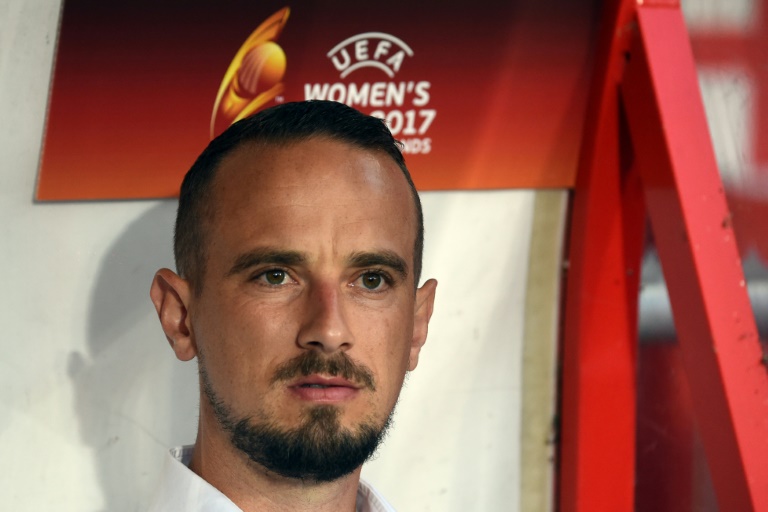Under-pressure Football Association chairman Greg Clarke admitted Thursday the English game's governing body had "lost the trust of the public" after being widely criticised for its handling of racism allegations involving the former manager of the women's national team.

A report released during a British parliamentary committee hearing last week found then manager Mark Sampson had made racist remarks to England women’s players Eniola Aluko and Drew Spence.
A flawed FA internal review and an earlier inquiry by lawyer Katharine Newton had cleared Sampson over allegations of bullying and discrimination by Chelsea Ladies striker Aluko.
Clarke, FA chief executive Martin Glenn, technical director Dan Ashworth and human resources director Rachel Brace appeared before the Culture, Media and Sport committee.
After lawmakers pulled apart the FA’s handling of the allegations that pre-empted Sampson’s dismissal in September during a two-hour hearing, committee chairman Damian Collins said all four FA officials should consider their positions.
“It was a bruising personal experience – and the culmination of a very damaging episode for the organisation,” Clarke said in a speech during the FA’s autumn council meeting at Wembley on Thursday.
Clarke’s speech also saw him promise a “top to bottom” cultural review of the FA’s national football centre at St George’s Park in Burton, central England.
Collins welcomed the speech although he was circumspect about what action would be taken.
“I think it is one of the more searingly honest speeches I have heard an FA chairman give,” he told AFP.
“The language was more honest than before but then we have been down this road before with the FA.
“You could interpret Greg Clarke’s speech as telling the FA Council to change when its the leadership who need to change their style. They need to walk the walk.”
Reflecting on the FA’s handling of the complaints, Clarke, who reiterated his apologies to the players involved, said: “We failed.”
He continued: “We have lost the trust of the public and I think this lack of trust is underpinned by three characteristics.”
– ‘White hierarchy’ –

After allegations of racism, England’s head coach Mark Sampson was eventually sacked in September 2017, not for his comments towards the England trio but for what the FA said was inappropriate behaviour in his previous job at Bristol Academy
Clarke — who was accused earlier Thursday of humiliating Andy Woodward who blew the whistle on historic sex abuse by describing him as ‘crying like a baby’ at a meeting last year — said the points held against the FA were the perception it lacked the competence to cover a huge remit, insufficient diversity and an inability to make the best use of senior players and managers’ experience.
All these factors were brought home to Clarke during a meeting last week with several county FAs in Sheffield, northern England, where he said there was only one woman and no one from a black, Asian or minority ethnic background.
“As I reflected on the meeting, and on the lessons of the Aluko case, it was clear to me that our good intentions alone are no longer enough,” said Clarke.
“We had a number of black players within our senior England women’s team who did not trust us enough to share their experiences of discriminatory behaviour.
“All they could see was a white hierarchy who had no experience of what it feels like to be a black person on the receiving end of inappropriate comments.”
Sampson was eventually sacked in September, not for his comments towards the England trio but for what the FA said was inappropriate behaviour in his previous job at Bristol Academy.
The DCMS hearing grilled the FA quartet regarding what checks were made on Sampson before he became England manager and why the governing body was withholding half of an £80,000 ($105,000) settlement owed to whistleblower Aluko.
Glenn denied a claim by Aluko that she was told she would receive the second half of the payment if she released a statement saying the FA was not institutionally racist.
However, on Thursday Gordon Taylor, chief executive of the Professional Football Association (PFA), revealed Aluko had now been paid the second tranche.
Support Local Journalism
Add The Citizen as a Preferred Source on Google and follow us on Google News to see more of our trusted reporting in Google News and Top Stories.






